Fiat 500 vs Peugeot 3008 – Which one offers the better deal?
Both models have their strengths – but which one suits you more?
Compare performance, efficiency, price and space directly: Fiat 500 or Peugeot 3008?
Costs and Efficiency:
Looking at overall running costs, both models reveal some interesting differences in everyday economy.
Fiat 500 has a convincingly advantage in terms of price – it starts at 21400 £, while the Peugeot 3008 costs 35100 £. That’s a price difference of around 13722 £.
In terms of energy consumption, the advantage goes to the Fiat 500: with 13 kWh per 100 km, it’s distinct more efficient than the Peugeot 3008 with 16.90 kWh. That’s a difference of about 3.90 kWh.
As for range, the Peugeot 3008 performs decisively better – achieving up to 698 km, about 367 km more than the Fiat 500.
Engine and Performance:
Under the bonnet, it becomes clear which model is tuned for sportiness and which one takes the lead when you hit the accelerator.
When it comes to engine power, the Peugeot 3008 has a significantly edge – offering 325 HP compared to 118 HP. That’s roughly 207 HP more horsepower.
In acceleration from 0 to 100 km/h, the Peugeot 3008 is decisively quicker – completing the sprint in 6 s, while the Fiat 500 takes 9 s. That’s about 3 s faster.
In terms of top speed, the Peugeot 3008 performs distinct better – reaching 220 km/h, while the Fiat 500 tops out at 150 km/h. The difference is around 70 km/h.
There’s also a difference in torque: Peugeot 3008 pulls significantly stronger with 511 Nm compared to 220 Nm. That’s about 291 Nm difference.
Space and Everyday Use:
Whether family car or daily driver – which one offers more room, flexibility and comfort?
Seats: Peugeot 3008 offers to a small extent more seating capacity – 5 vs 4.
In curb weight, Fiat 500 is evident lighter – 1330 kg compared to 1648 kg. The difference is around 318 kg.
In terms of boot space, the Peugeot 3008 offers decisively more room – 520 L compared to 185 L. That’s a difference of about 335 L.
In maximum load capacity, the Peugeot 3008 performs decisively better – up to 1480 L, which is about 930 L more than the Fiat 500.
When it comes to payload, Peugeot 3008 evident takes the win – 467 kg compared to 305 kg. That’s a difference of about 162 kg.
Who comes out on top?
Overall, the Peugeot 3008 shows itself to be is largely superior and secures the title of DriveDuel Champion.
It convinces with the more balanced overall package and proves to be the more versatile choice for everyday use.
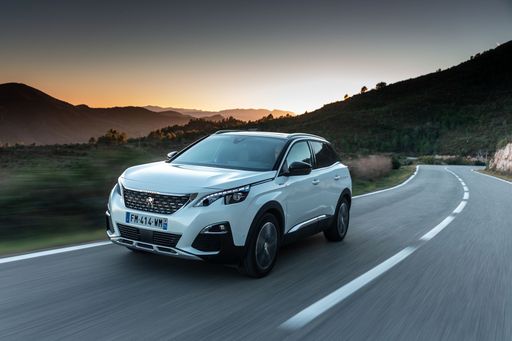
Peugeot 3008
Fiat 500
The Fiat 500 is a compact and stylish city car that has captured the hearts of urban drivers with its charming retro design. Its nimble handling and efficient engine make navigating tight city streets a breeze, while its cosy interior offers a surprising amount of comfort and modern technology. The car's iconic silhouette and vibrant colour options ensure it stands out, offering a unique blend of timeless appeal and contemporary flair.
details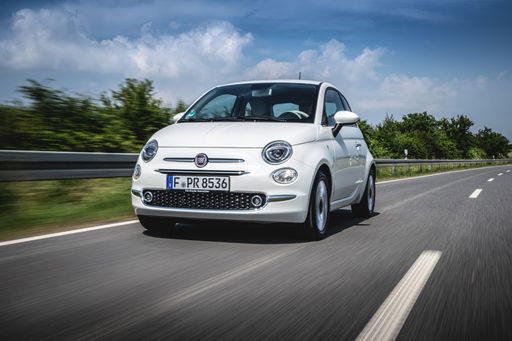 @ media.stellantis.com
@ media.stellantis.com
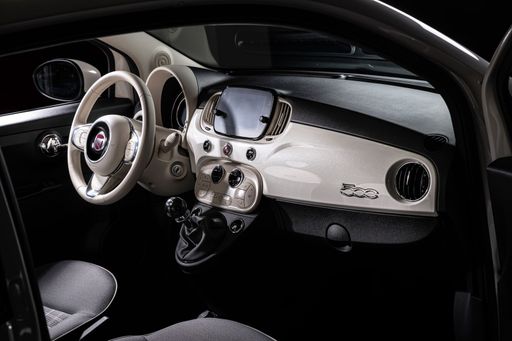 @ media.stellantis.com
@ media.stellantis.com
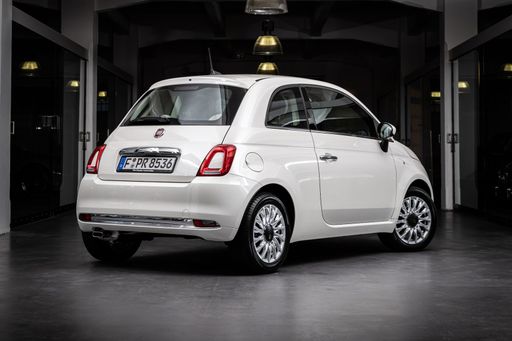 @ media.stellantis.com
@ media.stellantis.com
Peugeot 3008
The Peugeot 3008 is a compact SUV that seamlessly combines sleek design with modern functionality. Its interior offers a sophisticated and comfortable driving experience, characterised by high-quality materials and innovative technology features. With its dynamic performance and stylish aesthetics, the 3008 stands out in the competitive world of family SUVs.
details @ media.stellantis.com
@ media.stellantis.com
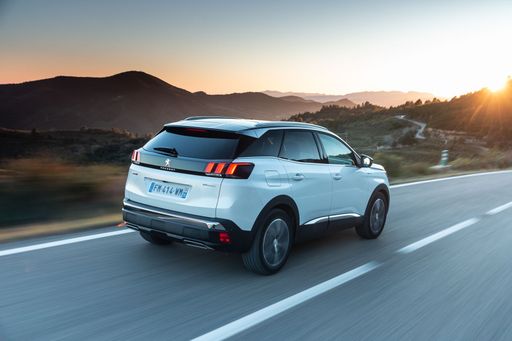 @ media.stellantis.com
@ media.stellantis.com
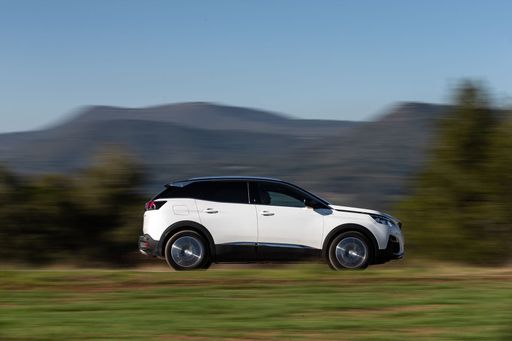 @ media.stellantis.com
@ media.stellantis.com
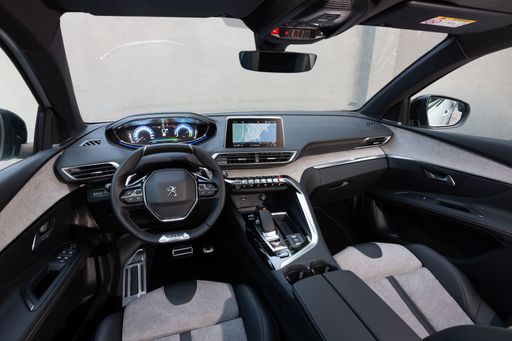 @ media.stellantis.com
@ media.stellantis.com

|

|
|
|
|
Costs and Consumption |
|
|---|---|
|
Price
21400 - 30800 £
|
Price
35100 - 51400 £
|
|
Consumption L/100km
-
|
Consumption L/100km
0.9 - 5.4 L
|
|
Consumption kWh/100km
13 - 14.7 kWh
|
Consumption kWh/100km
16.9 - 17.8 kWh
|
|
Electric Range
190 - 331 km
|
Electric Range
85 - 698 km
|
|
Battery Capacity
21.3 - 37.3 kWh
|
Battery Capacity
0.4 - 96.9 kWh
|
|
co2
0 g/km
|
co2
0 - 121 g/km
|
|
Fuel tank capacity
-
|
Fuel tank capacity
55 L
|
Dimensions and Body |
|
|---|---|
|
Body Type
Hatchback
|
Body Type
SUV
|
|
Seats
4
|
Seats
5
|
|
Doors
3 - 4
|
Doors
5
|
|
Curb weight
1330 - 1475 kg
|
Curb weight
1648 - 2337 kg
|
|
Trunk capacity
185 L
|
Trunk capacity
470 - 520 L
|
|
Length
3632 mm
|
Length
4542 mm
|
|
Width
1683 mm
|
Width
1895 mm
|
|
Height
1527 mm
|
Height
1641 mm
|
|
Max trunk capacity
550 L
|
Max trunk capacity
1430 - 1480 L
|
|
Payload
250 - 305 kg
|
Payload
383 - 467 kg
|
Engine and Performance |
|
|---|---|
|
Engine Type
Electric
|
Engine Type
Plugin Hybrid, Electric, Petrol MHEV
|
|
Transmission
Automatic
|
Transmission
Automatic
|
|
Transmission Detail
Reduction Gearbox
|
Transmission Detail
Dual-Clutch Automatic, Reduction Gearbox
|
|
Drive Type
Front-Wheel Drive
|
Drive Type
Front-Wheel Drive, All-Wheel Drive
|
|
Power HP
95 - 118 HP
|
Power HP
145 - 325 HP
|
|
Acceleration 0-100km/h
9 - 9.5 s
|
Acceleration 0-100km/h
6 - 10.2 s
|
|
Max Speed
135 - 150 km/h
|
Max Speed
170 - 220 km/h
|
|
Torque
220 Nm
|
Torque
230 - 511 Nm
|
|
Number of Cylinders
-
|
Number of Cylinders
3 - 4
|
|
Power kW
70 - 87 kW
|
Power kW
107 - 239 kW
|
|
Engine capacity
-
|
Engine capacity
1199 - 1598 cm3
|
General |
|
|---|---|
|
Model Year
2023 - 2025
|
Model Year
2024 - 2025
|
|
CO2 Efficiency Class
A
|
CO2 Efficiency Class
B, A, D
|
|
Brand
Fiat
|
Brand
Peugeot
|
What drivetrain options does the Fiat 500 have?
The Fiat 500 is offered with Front-Wheel Drive.
The prices and data displayed are estimates based on German list prices and may vary by country. This information is not legally binding.
